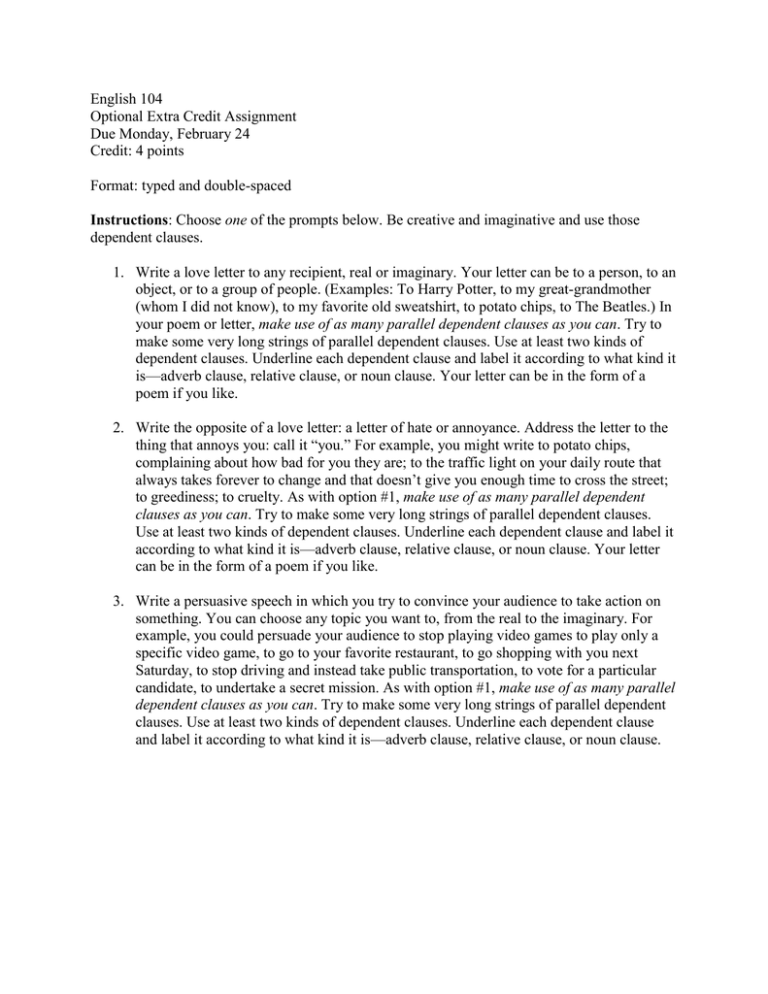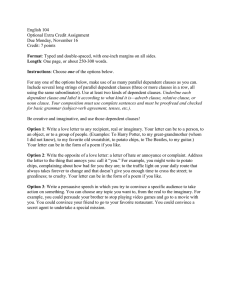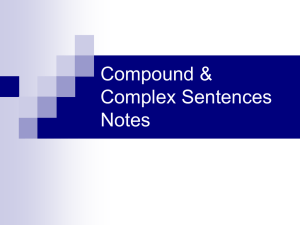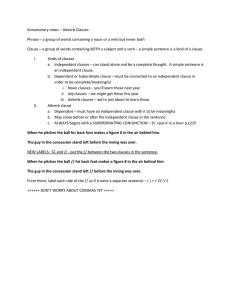English 104 Optional Extra Credit Assignment Due Monday, February 24
advertisement

English 104 Optional Extra Credit Assignment Due Monday, February 24 Credit: 4 points Format: typed and double-spaced Instructions: Choose one of the prompts below. Be creative and imaginative and use those dependent clauses. 1. Write a love letter to any recipient, real or imaginary. Your letter can be to a person, to an object, or to a group of people. (Examples: To Harry Potter, to my great-grandmother (whom I did not know), to my favorite old sweatshirt, to potato chips, to The Beatles.) In your poem or letter, make use of as many parallel dependent clauses as you can. Try to make some very long strings of parallel dependent clauses. Use at least two kinds of dependent clauses. Underline each dependent clause and label it according to what kind it is—adverb clause, relative clause, or noun clause. Your letter can be in the form of a poem if you like. 2. Write the opposite of a love letter: a letter of hate or annoyance. Address the letter to the thing that annoys you: call it “you.” For example, you might write to potato chips, complaining about how bad for you they are; to the traffic light on your daily route that always takes forever to change and that doesn’t give you enough time to cross the street; to greediness; to cruelty. As with option #1, make use of as many parallel dependent clauses as you can. Try to make some very long strings of parallel dependent clauses. Use at least two kinds of dependent clauses. Underline each dependent clause and label it according to what kind it is—adverb clause, relative clause, or noun clause. Your letter can be in the form of a poem if you like. 3. Write a persuasive speech in which you try to convince your audience to take action on something. You can choose any topic you want to, from the real to the imaginary. For example, you could persuade your audience to stop playing video games to play only a specific video game, to go to your favorite restaurant, to go shopping with you next Saturday, to stop driving and instead take public transportation, to vote for a particular candidate, to undertake a secret mission. As with option #1, make use of as many parallel dependent clauses as you can. Try to make some very long strings of parallel dependent clauses. Use at least two kinds of dependent clauses. Underline each dependent clause and label it according to what kind it is—adverb clause, relative clause, or noun clause.




